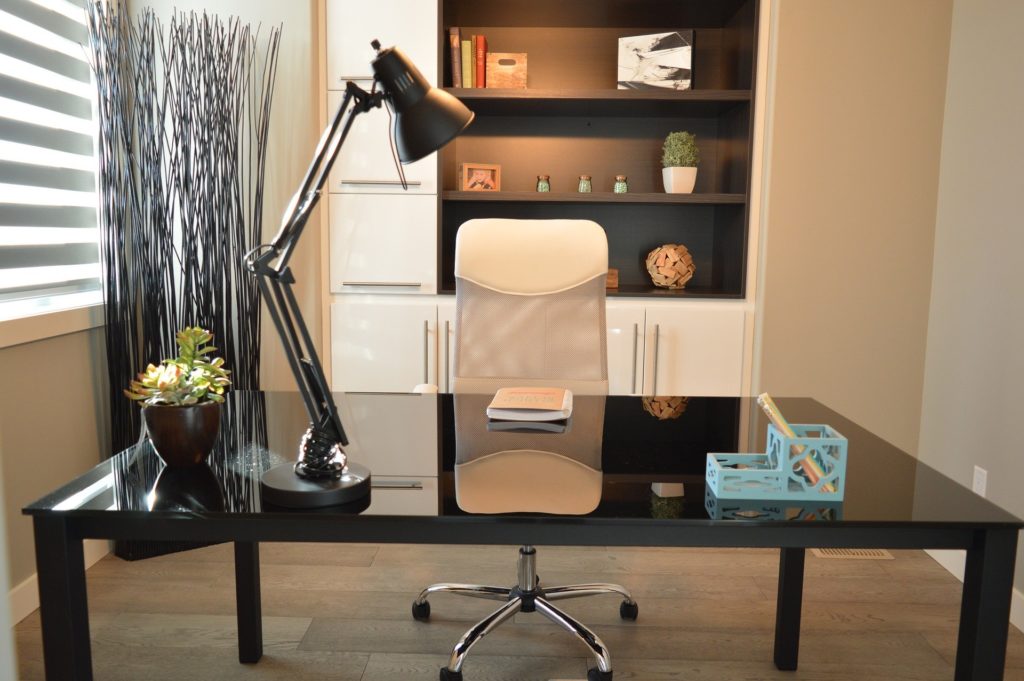Professor Gail Kinman, Professor Almuth McDowall and Dr Kevin Teoh from Birkbeck’s Department of Organizational Psychology share tips on how to manage staff who are working from home.

Steps to manage the Covid-19 virus mean that working from home is now mandatory for many people. This will help contain the virus, but such a major shift in working practices will not be easy. Some employees will be working from home for the first time and may struggle to accommodate to their new environment. It may also pose challenges for managers who are required to ensure ‘business as usual’ but have little experience of managing people who work remotely.
The skills required to manage staff during these challenging times are quite different than those needed face to face. Below, we provide some guidance on how to manage remote workers effectively.
Set expectations from the outset signalling support and understanding
The move to remote working will make communication more challenging and you will have less insight into what staff are doing each day. The first step for any organisation is to communicate with all workers affected, setting out clearly the support you are offering, how you will communicate with them and the expectations you have for their performance.
In the current special circumstances, this may mean waving goodbye to previous management practices such as mandatory core hours and operating a flexible “work when you can, as much as you can” policy. Some workers will have challenging circumstances and may have little time or energy for uninterrupted home working. It is important to acknowledge these challenges from the outset and keeping conversation streams open will help you become aware of any changes in people’s circumstances. Also provide clear information on who staff can turn to for advice and support and issue regular updates.
A settling in period is crucial
Staff will need some time to process the change, access the necessary equipment and systems, establish channels of communication and negotiate and adjust work tasks. Do not make assumptions that people who work at home will be more productive as they have more flexibility and their commuting time is eliminated. People will typically take a lot longer to do things and be unable to work to full capacity, especially during the early days of home working. Keep reassuring your staff that you do not expect them to be as productive as usual – maybe the best that you can do in the short term is to identify priorities and work out how best to meet them. Ensure that you have a mechanism for staff to feed back on how things are working out for them. Double check also that appropriate hardware and software is in place. For instance, there are reports already that some organisations are running out of virtual protected network (VPN) licenses.
Be sensitive to role stress
People experience role overload when they are expected to fulfil multiple roles simultaneously without the resources to do so. Resources can be time, energy or attention. Role conflict occurs where fulfilling the demands of one role (e.g. work) is incompatible with meeting those of another (e.g. caring for children). Understandably, both role overload and conflict can be distracting and impair wellbeing and productivity.
Staff will have to dedicate considerable time and energy to craft a balance between their work demands and domestic responsibilities. They are also likely to be anxious about obtaining household provisions and need to monitor the health of themselves and their family members.
Build trust and avoid micromanaging
Building trust between you and your team is crucial. Jointly negotiated goals will help your staff feel engaged, productive and motivated. Deadlines can be set but, as discussed above, flexibility will be required as personal circumstances are likely to be subject to change. Bear in mind that the communication process should be two-way. It is important for managers to check in with staff to monitor their progress and their mental health, but your direct reports also have a responsibility to provide you with updates. Managers are unlikely to have the time to set up cumbersome and intrusive reporting processes, but avoid bombarding people with unnecessary requests, forms, procedures and guidelines.
Use meetings sparingly
Tools such as Skype and Zoom make organising meetings for remote workers straightforward but be aware that online meetings can be time-consuming. Ensuring that all staff members have an input is also challenging. Try not to organise meetings over lunchtime to ensure that staff have a break and are able to prepare meals for children. Send out clear meeting etiquette guidelines. Ensure that meetings are never booked back–to–back, as they can become very draining. A shared diary will help mitigate this.
Be aware of the risks of being ‘always on’
Discourage staff from working long hours even if they are willing to do so, as they will be less effective and more vulnerable to health problems. Encourage people to have regular breaks away from their workstation throughout the day. As well as stopping work physically, staff should switch off psychologically to replenish their energies and to enable them to meet their domestic responsibilities. Role model the behaviour you expect from them, such as making it clear that there are times that you are not available, are resting or are meeting your other responsibilities.
Be aware of people’s personal circumstances and conscious of the challenges they are facing
What caring responsibilities do your direct reports have? Are they home-schooling? Do they have the necessary equipment and a quiet working environment? Some people may have access to a dedicated office, while others have to work on a kitchen table, a bedroom or the sofa. Encourage people to take steps to create boundaries (both physical and psychological) and avoid distractions wherever possible but accept that this will sometimes be inevitable. Children will interrupt meetings, dogs will bark and internet connections will inevitably fail.
Treat your staff as individuals
Your staff will experience the change to remote working in different ways. Some may feel anxious, while others will relish the challenge and break from routine. You will find that some people will need more support than others, so you could offer them short goal-setting meetings at the start of each day and a catch up at the end. Others, however, might find this intrusive and prefer to be left alone to get on with it. Be aware that some people will be prone to over-working and may need encouragement to switch off. Asking staff to share with you any difficulties they may be experiencing will help you gain insight into their individual circumstances, needs and preferences.
Encourage socialising and bonding
Working at home can be isolating; this will be a particular problem where staff are largely confined to their homes. Loneliness can reduce motivation and productivity and increase the risk of stress, anxiety and depression. It is important therefore for people to maintain social bonds and feel part of the team. Take some time before a meeting for people to share something personal. Encourage other social bonding opportunities such as ‘virtual coffee time’, a video chat over lunch, or a joint exercise session. Continue to celebrate people’s birthdays or other special occasions. Be creative – one manager we recently spoke to distributed a mini ‘pub quiz’ to help relieve the pressure and encourage team bonding.
Be kind, compassionate and respectful
Show genuine concern for people’s wellbeing and understanding of their personal circumstances. Provide praise and positive feedback so that people know their efforts are recognised and provide affirmation of confidence in your team. You can encourage staff to be open about any difficulties they are experiencing by disclosing that you too are struggling at times. People’s home environments are now their workspaces, but they should not feel that the organisation has moved in with them. It is important, therefore, that communication is measured and considerate.
What about your own wellbeing?
It is equally important that you show the same kindness and compassion to yourself. Expectations of managers are high, and many are now responsible for keeping the business afloat while endeavouring to support their staff through a major transition. Recognise that these are unusual times and it will be a learning experience for everyone.
Further Information:





